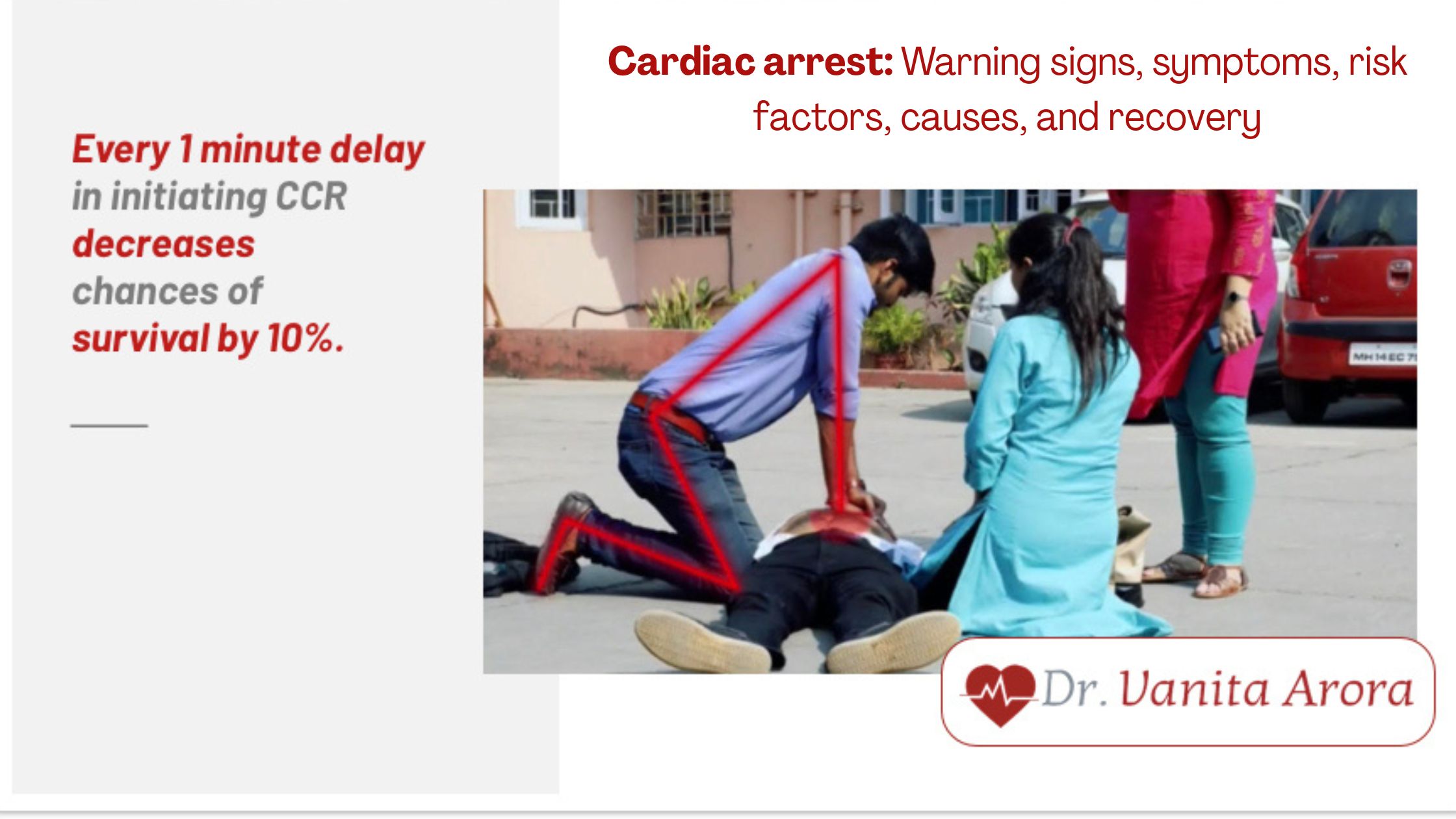
 July 26, 2022 | 3 minutes read time
July 26, 2022 | 3 minutes read timeWhen the heart unexpectedly or suddenly stops pumping, it’s called cardiac arrest. As a result, the other vital organs like the brain don’t receive oxygenated blood. More often than not, cardiac arrest leads to death, the top heart doctor explains.
Cardiac arrest is often confused with heart attack, Dr. Vanita highlights. Though both are fatal events in most cases, the latter is caused by a blockage in the artery carrying blood to the heart. On the other hand, sudden cardiac arrest occurs due to issues with the heart’s electrical conduction system.
Cardiac arrest is also referred to as sudden cardiac death. It happens when the upper or lower chambers (atria or ventricles) stop beating.
Identifying the early warning signs of cardiac arrest can help prevent the event, the leading heart doctor advises.
Some of those early warning signs are:
If you can tick most of these signs, and they also occur persistently, it’s best to consult a heart specialist like Dr. Vanita.
There are other, more urgent signs of cardiac arrest, including:
The patient needs immediate emergency care under such circumstances.
However, in many cases, there are no signs and symptoms. To prevent cardiac arrest, you must schedule regular checkups with a cardiologist.
Certain heart conditions can amplify the risk of cardiac arrest.
Other risk factors include:
During an event of cardiac arrest, bystanders must perform cardiopulmonary resuscitation (CPR) on the patient until the first responders arrive. Doctors may perform defibrillation to restart the heart.
If the person survives the event, doctors begin treatment to aid recovery and prevent another episode. The recovery phase mainly comprises dietary changes, exercise, medication, and surgery (if needed).
A leading heart specialist in India, Dr. Vanita has been treating patients for almost three decades. She has various specialties, including HIS bundle pacing, AICD implantation, leadless pacemaker, sudden cardiac arrest, cardiac resynchronization therapy, and more.
Dr. Vanita can precisely determine the signs of cardiac arrest, identify what’s causing them, and recommend steps, medications, or procedures to prevent cardiac arrests as well as aid your recovery.
Fix an appointment on her website or call at +91 98738 79994. You can also drop an email at doctorvanitaarora@gmail.com.
Promoted by Fix Me Digitally